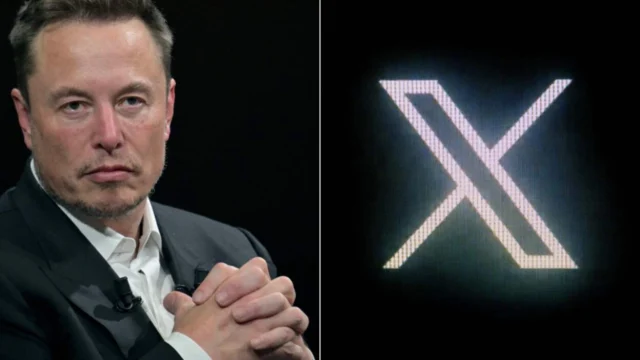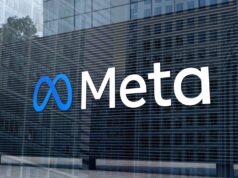
In the realm of social media, few platforms have garnered as much attention and controversy as X, formerly known as Twitter. Since Elon Musk’s acquisition, the platform has undergone a series of transformative changes, sparking a heated debate about the balance between free speech and online safety. Musk himself has a theory about why your X feed might be feeling increasingly toxic, and it centers around his prioritization of free speech and the platform’s algorithmic adjustments.
The Musk Doctrine: Free Speech Above All
Musk, a self-proclaimed “free speech absolutist,” believes that his decision to relax content moderation on X has inadvertently amplified hateful and harmful content. He argues that while this might make the platform less palatable to some, it’s a necessary sacrifice to foster open dialogue and debate. In his view, the free flow of information, even if it’s offensive or controversial, is essential for a healthy democracy.
The Algorithmic Echo Chamber
Another critical element in Musk’s theory is the platform’s algorithm. He posits that the algorithm, designed to show users content they’re most likely to engage with, inadvertently creates an echo chamber of extreme and divisive opinions. This constant exposure to polarizing content can foster a toxic environment, where users are increasingly entrenched in their own beliefs and less willing to engage in meaningful dialogue with those who hold opposing views.
Musk’s Transformative Touch
Since taking the helm at X, Musk has implemented several sweeping changes that have likely contributed to the perceived increase in toxicity. These include:
- Relaxed Content Moderation: Musk significantly downsized the platform’s content moderation team and rolled back many of the previous policies. This has led to a surge in hate speech, misinformation, and other forms of harmful content, creating a breeding ground for toxicity.
- Algorithm Tweaks: Musk’s modifications to the platform’s algorithm, while aimed at promoting transparency and free speech, have been criticized for making the algorithm more opaque and unpredictable. Some argue that these changes have amplified controversial content, further fueling the toxicity.
- Verification Overhaul: The revamped verification system, making it easier for anyone to obtain a blue checkmark, has led to a proliferation of fake accounts and impersonators. This has muddied the waters, making it harder to distinguish between genuine users and those spreading misinformation or engaging in toxic behavior.
The Fallout and Discourse
Musk’s changes have ignited a fierce debate about the future of X and the broader implications for social media. While some laud his commitment to free speech, others argue that he’s jeopardizing user safety and fostering a hostile environment. The controversy has even led to an exodus of users and advertisers, raising concerns about the platform’s long-term viability.
Beyond X: The Broader Toxicity Crisis
The issue of online toxicity is not confined to X; it’s a pervasive problem plaguing many social media platforms. However, Musk’s audacious moves have thrust X into the epicenter of this conversation, forcing us to confront the complex challenges of balancing free speech with the need to protect users from harm. It’s a delicate tightrope walk, with no easy answers.
Navigating the Toxic Terrain: Personal Reflections
As an avid user of X, I’ve personally witnessed the shift in tone since Musk’s takeover. My feed is now inundated with more hate speech, misinformation, and negativity, making it a less enjoyable and engaging experience. The algorithm seems to be pushing me towards more controversial content, leaving me feeling drained and disillusioned. It’s a stark reminder of the challenges we face in creating a healthy and inclusive online environment.
The Uncharted Path Ahead
The future of X under Musk’s leadership remains uncertain. Will the platform find a way to reconcile free speech with user safety, or will the toxicity continue to spiral out of control? Only time will tell. However, one thing is clear: the debate about the role of social media in society is far from over. It’s a complex and multifaceted issue that demands our attention and thoughtful consideration.
Beyond Musk’s Theory: Additional Factors
While Musk’s theory sheds light on some of the contributing factors to X’s toxicity surge, it’s important to acknowledge that other forces are also at play. These include:
- The Polarized Political Climate: The current political landscape is marked by deep divisions and animosity, which often spill over onto social media platforms, fueling toxicity and online conflict.
- The Cloak of Anonymity: The internet’s anonymity can embolden individuals to engage in toxic behavior they wouldn’t dare exhibit in real life, creating a breeding ground for hate speech and cyberbullying.
- The Absence of Consequences: The lack of tangible consequences for online toxicity further exacerbates the problem, allowing perpetrators to act with impunity.
Confronting the Toxicity Challenge
Addressing the issue of online toxicity requires a multi-pronged approach involving platform owners, users, and policymakers. It’s a complex problem with no easy solutions, but it’s one we must tackle head-on if we want to create a more civil and inclusive digital world. It’s time to move beyond the blame game and work collaboratively to foster a healthier online environment for all.










